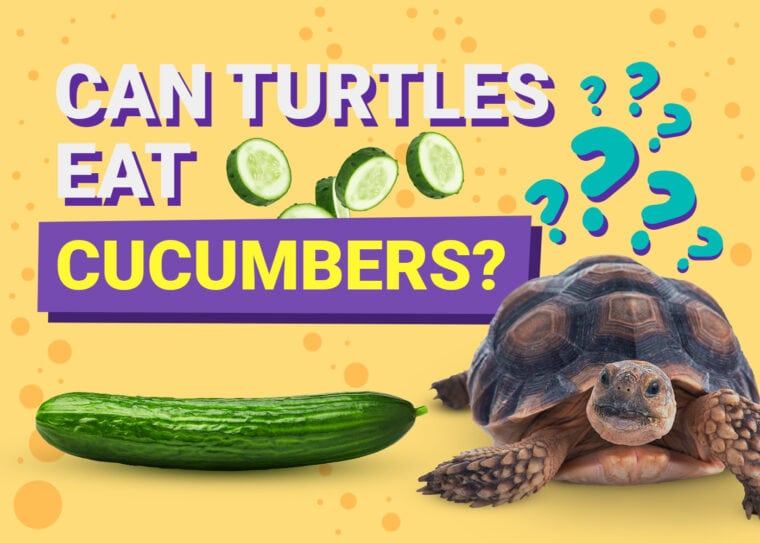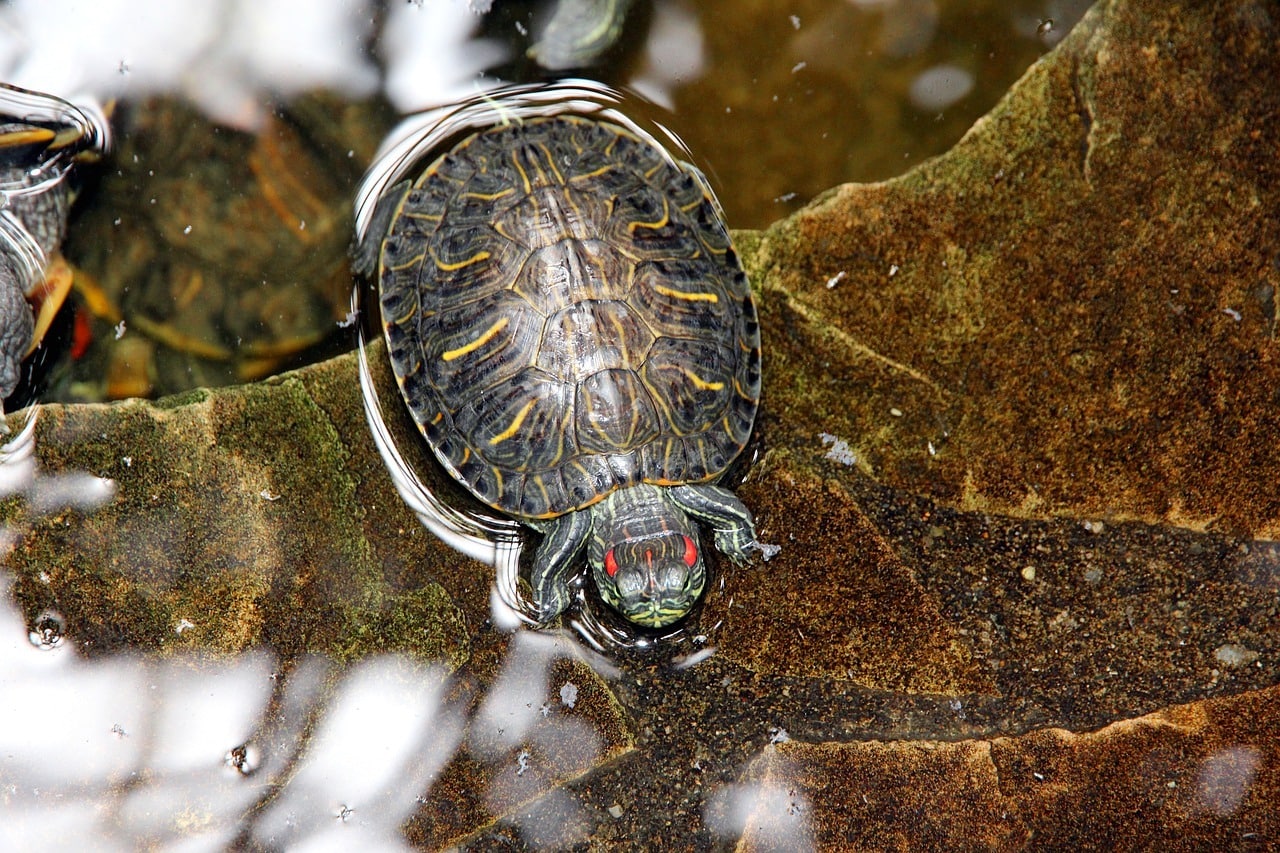
Turtles are rewarding pets for the right owner, but they’re not without their unique challenges. They start off small but often grow large enough to require an outdoor enclosure, and their diet is just as interesting; many species start life as primarily carnivorous but tend to transition to a more herbivore-based diet as they enter adulthood.
If you have such a pet turtle species, you might be wondering if fruits or vegetables in your house, such as cucumbers, are safe for your pet. The short answer is yes, most healthy omnivorous turtles can eat cucumbers in moderation. But this short answer is not the end of the story — read on.
This article focuses on the nutritional benefits and risks of cucumbers in the diet of omnivorous pet aquatic turtles and North American box turtles (of the genus Terrapene).
This article focuses on the nutritional benefits and risks of cucumbers in the diet of omnivorous pet aquatic turtles and North American box turtles (of the genus Terrapene).
Nutritional Benefits of Cucumbers for Turtles
Cucumbers are not toxic for turtles. Botanically a fruit; they’re mostly made of water. But nonetheless they do offer a few other nutrients too.1
When it comes to picking fruits for your turtle, cucumbers are among the best options out there. However, context is important here, as fruits do not form the major component of any pet turtle’s diet. Box turtles seem to be the best adapted when it comes to incorporating fruit into their diet, but even for them, fruits should only be around 10-15% of their diet.
Nonetheless, among the fruits your turtle can safely consume, cucumbers are considered a good option, due to their benefits.
The main nutritional positive points for cucumbers can be summarized as follows:
Nutritional Risks of Cucumbers for Turtles
Unfortunately, cucumbers have some nutritional downsides, which somewhat takes away from their appeal.
High Water Content
Though not a disadvantage in a strict sense, the high water content of cucumbers might be an issue for your pet depending on the rest of their diet. If their diet is too high in moisture, they may develop issues such as diarrhea. However, this is an intrinsic property of cucumbers, and portion control tends to neutralize this downside almost immediately.
Low Nutritional Yield
A natural consequence of their high water content means that cucumbers are also intrinsically low in terms of their other nutritional yield. Therefore, they are a good snack of sorts, but not necessarily a very nutritious one. Expecting your turtle to meet their nutritional needs from cucumbers is a near impossible task, as 100 grams of the fruit only yields around 15 calories. Most adult turtles only consume about 2 – 5% of their body weight as food on a daily basis (this varies by species), which means that there isn’t much room for a filling but “empty” food such as cucumbers
Calcium to Phosphorus Ratio
For healthy adult pet turtles that are not brumating, reproducing, or recovering from an illness, their diet should have a calcium-to-phosphorus ratio of anywhere between 1.5:1 and 2:1. This means the calcium should ideally be around twice as much as the phosphorus. This ratio is likely much higher for juveniles and turtles that are breeding (particularly females).
The biochemical properties of most fruits yield somewhat unfavorable ratios of calcium to phosphorus. Cucumbers are no exception to this rule. As seen above, cucumbers have an inverse calcium to phosphorus ratio (phosphorus is more abundant than calcium).
The ratios of calcium and phosphorus are often under scrutiny whenever it comes to a turtle’s diet, because a prolonged imbalance of these minerals may lead to a condition known as metabolic bone disease.
Perhaps a running theme by now, it is once again important to factor in context – if cucumbers form a small portion of your pet’s salad (which they should) then this risk would likewise also be lessened drastically.

All in all, though cucumbers have some downsides worth mentioning, it is important to remember that moderation and portion control with fruits largely negates these downsides.
Serving Cucumber To Your Pet
There are a few cautions to take before feeding a turtle any cucumber to ensure the animal’s safety. The most important thing is to always opt for fresh, raw cucumbers. These should be thoroughly washed and then sliced into portions appropriate for your pet (in relation to their size).
It is also important to avoid feeding your turtle a cucumber that has been processed in any way, aside from being shredded or cut for serving. Cucumbers that your turtle consumes should never be cooked or seasoned, as the oils used for cooking and seasonings are not naturally available to turtles and could be problematic for turtles to properly digest.
Pickled cucumbers are too acidic and salty for turtles to safely consume and could cause health problems as time goes on. Therefore, the safest way to feed cucumbers to a turtle is to offer them fresh and without any additives of any kind. If your turtle does not like cucumber as-is, it’s okay — there are plenty of other options you could try for your pet. Examples include apples, grapes, or carrots. However, generally speaking most turtles are opportunistic foragers; persistent refusal of food definitely warrants veterinary attention.
Final Thoughts
Healthy adult omnivorous freshwater turtles and North American box turtles can safely consume cucumbers. However, all fruit should be considered a small portion of their diet, and with the relatively empty nutritional profile of a cucumber, it’s likely not good to make it a major component of your pet’s diet.
A consultation with your exotic or reptile nutritionist or veterinarian should be on your to-do list if you plan on getting a pet turtle; their input is definitely mandatory to ensure that you formulate a meal plan that works for your pet.
Related Reads:








